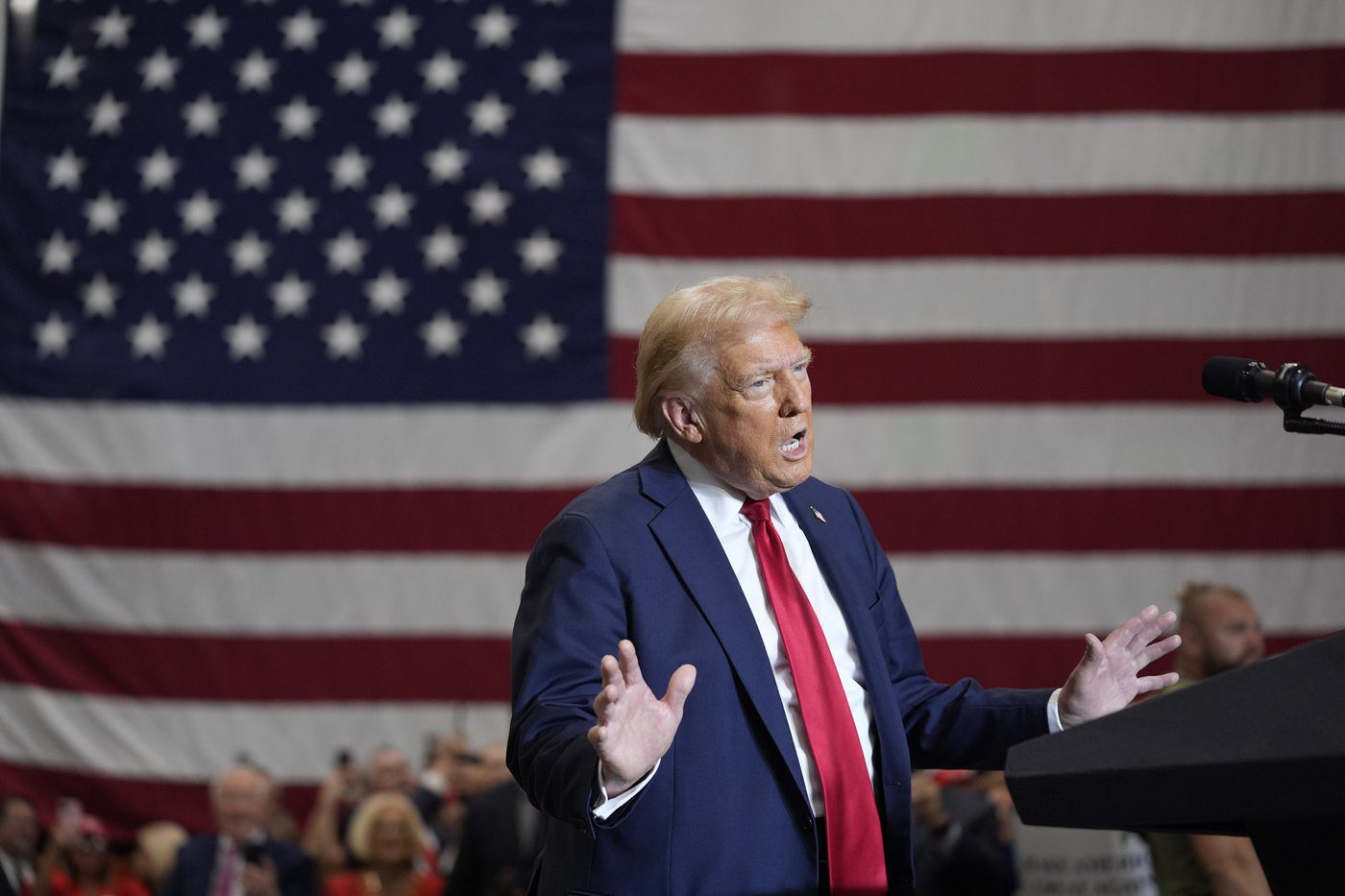NEW YORK (AP) — Some judges in a New York appeals court appeared receptive Thursday to possibly reversing or reducing a civil fraud judgment that stands to cost Donald Trump nearly $500 million. One judge called the former president’s penalty “troubling” and wondered if the state’s policing of private business transactions amounted to “deterrence” or “mission creep.”
A five-judge panel in the state’s intermediate appeals court in Manhattan quizzed lawyers representing Trump and the New York attorney general’s office during oral arguments in the Republican presidential nominee’s fight to get the Feb. 16 verdict overturned.
At times the judges appeared dubious of Trump’s side, too. Often, judges in appeals courts will ask pointed questions of both sides to test their arguments.
Trump is asking the court to reverse Judge Arthur Engoron’s ruling that Trump lied for years about his wealth on paperwork given to banks, insurers and others to make deals and secure loans. The verdict cut to the core of Trump’s wealthy, businessman persona.
Trump did not attend the hearing. In the past, he has decried the lawsuit’s outcome as “election interference” and accused Engoron of punishing him for “having built a perfect company.”
The Appellate Division typically rules about a month after arguments, meaning a decision could come before Election Day. The court could either uphold the trial verdict, reduce or modify the penalty or overturn Engoron’s verdict entirely. A majority of the five appellate judges from Thursday’s hearing must agree for the judgement to be altered.
Trump lawyer D. John Sauer argued that the lawsuit brought by Attorney General Letitia James, a Democrat, stretched the state’s consumer protection laws, insinuating the government into transactions where there were “no victims” and “no complaints.”
Trump’s lenders, insurers and others he did business with were “sophisticated counterparties” that performed their own due diligence rather than relying solely on the annual financial statements that he provided — documents that Engoron ruled wildly inflated his net worth.
The case, Sauer said, “involves a clear cut violation of the statute of limitations” with some transactions dating back more than a decade. If the verdict is allowed to stand, he argued, “people can’t do business in real estate” without fearing they’ll face similar scrutiny.
The state’s deputy solicitor general, Judith Vale, countered that “there was absolutely a public impact and a public interest here,” noting that Trump lenders including Deutsche Bank incurred undue risk based on his alleged misrepresentations.
But Judge Peter H. Moulton questioned if James’ office was engaging in “mission creep,” and whether the law she sued Trump under had “morphed into something that it was not meant to do.” Later, Moulton questioned Vale about Engoron’s hefty punishment, observing that “the immense penalty in this case is troubling.”
Vale explained that, under the law, the judge was permitted to essentially take away whatever Trump gained from transactions based on his inflated financial statements. That includes profits on sales of properties like his Washington, D.C. hotel and savings he pocketed from lower loan interest rates.
“That is an enormous benefit that they got from the misconduct, and it is not an excuse to say, ‘well, our fraud was really successful, so we should get some of the money,’” Vale argued.
The state argues there is ample evidence to support the verdict and that Trump’s appeal is based on meritless legal arguments, many of which Engoron and the Appellate Division have rejected before.
Sauer previously argued Trump’s successful presidential immunity case before the U.S. Supreme Court.
Ruling after a 2 1/2-month trial, Engoron found that Trump had padded his net worth by several billion dollars on annual financial statements by overvaluing assets including his golf courses and hotels, his Mar-a-Lago estate in Florida and his Trump Tower penthouse in Manhattan.
Trump and his co-defendants are also challenging Engoron’s decision to rule, even before testimony had begun, that the state had proven that Trump had fraudulently inflated his financial statements. The judge ordered Trump and the other defendants to pay $363.9 million in penalties — a sum that has now grown with interest to more than $489 million.
Trump posted a $175 million bond in April to halt collection of the judgment and prevent the state from seizing his assets while he appeals. The bond guarantees payment if the judgment is upheld. If Trump wins he’ll get the money back.
If either side doesn’t like the outcome, it can ask the state’s highest court, the Court of Appeals, to consider taking the case. Trump has vowed to fight the verdict “all the way up to the U.S. Supreme Court if necessary.”
Jill Colvin And Michael R. Sisak, The Associated Press





